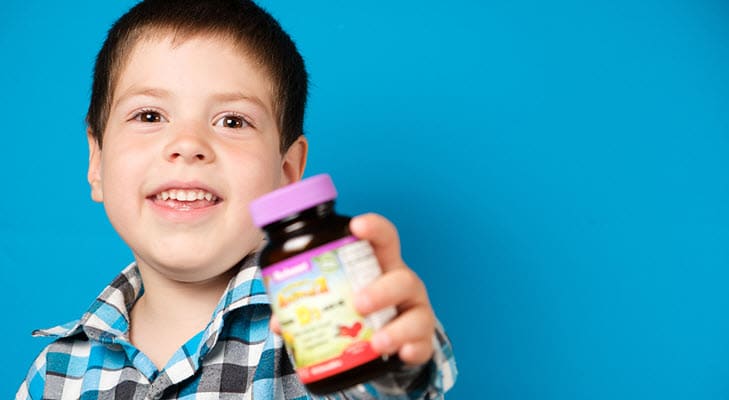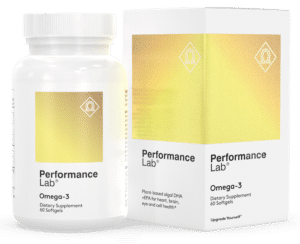Table of Contents
Are you looking for innovative ways to support your loved one with autism spectrum disorder?
The world of nootropics for autism may hold the key to unlocking a world of potential benefits for individuals with autism. Recent research has shown that natural nootropic supplements have the potential to enhance improve cognitive function and social behavior to supporting overall health.
In this article, we’ll explore various nootropic supplements for autism and their potential benefits for autistic children. And how to incorporate them into a comprehensive treatment plan. Get ready to discover a new world of possibilities!
Short Summary
- Nootropic supplements may potentially improve brain processes and function, and alleviate symptoms of autism, although consulting with a healthcare professional is essential for safe use.
- Nootropic supplements such as ALCAR, NAC, glutathione, Black Seed Oil, Lithium Orotate, Taurine, and Huperzine-A have been studied for their potential to benefit autistic people.
- Peer reviewed studies show many with autism are dealing with nutrient deficiencies and a well-planned supplement regimen may help relieve some autistic symptoms.
 Understanding Nootropics and Their Role in Autism
Understanding Nootropics and Their Role in Autism
Nootropics are also known as cognitive-enhancing dietary supplements. And have been gaining attention for their potential to improve the symptoms of autism by supporting brain function and overall health.
Research suggests that many children with autism may suffer from nutritional deficiencies, making it vital to ensure they receive the essential nutrients they need for optimal growth and brain development.
By incorporating vitamins and minerals along with nootropic supplements into a well-rounded treatment plan, individuals with autism may experience improvements in brain health, mental clarity, social interactions, communication, and behavior.
What are Nootropics?
Nootropics are a class of natural supplements that support brain function. Also referred to as neuro-enhancers, cognitive boosters, or memory enhancers. Nootropics include amino acids, peptides, herbs, and herbal extracts.
Nootropics are used to improve cognitive functions, focus, motivation, memory, and mood. Each of these depend on different brain processes. And different substances can be used to affect each of these functions.
A nootropic stack, or combination of nootropic supplements tailored for each autistic person can help them deal with autism. Omega-3 essential fatty acids for example have been shown in studies with children with autism to help reduce hyperactivity.
And some of the B-Vitamins have been shown to reduce inflammation which is often found in the autistic brain.
The Connection between Nootropics and Autism
Nootropics have been found to potentially improve symptoms associated with autism by boosting brain function, digestive health, neurotransmitter production, and improving overall health.
For instance, Vitamin D3 is needed for the production of GABA, glutamine, and dopamine in the brain. And in combination with Omega-3’s is needed for serotonin synthesis, release, and function. Which regulates executive function, sensory gating, and social behavior in those with autism.
Keep in mind that it is important to get professional medical advice to ensure the safe and effective use of nootropics for autism, watch for adverse effects, and to monitor and adjust nootropic use as needed.
 Top Nootropic Supplements for Autism Spectrum Disorder
Top Nootropic Supplements for Autism Spectrum Disorder
In this section, we will look into various nootropic supplements that may benefit your autistic child, including N-Acetyl L-Cysteine (NAC), Glutathione, Lithium Orotate, Black Seed Oil, Huperzine-A, L-Carnosine, Artichoke extract (luteolin), Omega-3, BCAAs, Acetyl-L-Carnitine, Folate + Methylcobalamin, Zinc, Vitamin D, and Taurine.
Each supplement offers unique benefits and has the potential to help improve the symptoms of autism by supporting brain function, neurotransmitter production, and overall health.
NOTE: many of the dosage recommendations below are for adults and dosages should be adjusted or reduced appropriate to the age of the child.
N-Acetyl L-Cysteine (NAC)
N-Acetyl L-Cysteine (NAC) – 600 mg 3-times per day – is a dietary supplement that supports the immune system because it increases the levels of the body’s primary antioxidant Glutathione.[i] Evidence suggests that NAC may help reduce hyperactivity and irritability as well as enhance social awareness in children with autism.[ii]
By incorporating NAC into a comprehensive treatment plan, autistic individuals may experience improvements in mood, attention, and cognitive function.
I use and recommend: Life Extension – NAC
 Glutathione
Glutathione
Glutathione – 250 – 1,000 mg per day – is a tripeptide made up of cysteine, glycine, and glutamine and present in high concentrations in every cell in your body.
Glutathione is the master antioxidant in your body supporting a healthy immune system and plays a key role in the defense of brain cells. Research examining autistic individuals show they have significantly lower levels of Glutathione compared to other developing children.[iii]
Adequate Glutathione levels help reduce glutamate toxicity. And control proinflammatory cytokines such as nuclear factor kappa B (NF-κB) and activator protein 1 (AP-1) which can have a profound effect on reducing inflammation.
Studies are clear that Glutathione plays a role in preventing and treating neurodegenerative disease, including Alzheimer’s disease, bipolar disorder, obsessive compulsive disorder (OCD) and autism.[iv]
I recommend: AMANDEAN Liposomal Glutathione (Setria®) (Amazon) which is a liquid based form of liposomal Glutathione.
Or get 250 mg Setria® liposomal Glutathione along with Vitamin D3, the NutriGenesis® forms of Vitamin C, Selenium, and Zinc as well as the patented IMMUSE™ probiotic Lactococcus lactis in one NutriCaps® capsule of Performance Lab® Immune.
Lithium Orotate
Lithium Orotate – 5 mg 3-times per day or as needed – studies show the micro-dosing lithium with a supplement like Lithium Orotate induces gene transcription in the hippocampus, amygdala, and hypothalamus – all areas implicated in autism, depression, and anxiety.[v]
If you’re dealing with autism, you may want to try Lithium Orotate. Focus could improve, racing thoughts diminish, and motivation levels could increase. You’ll have more coping ability.
I use and recommend: Nutrient Carriers Advance Research – Lithium Orotate (Amazon)
Black Seed Oil
Black Seed Oil – 1 – 3 teaspoons per day – is extracted from the seed of Nigella Sativa which is an annual herb native to the Middle East, Southern Europe, and North Africa. And has been used for millennia for a variety of illnesses.
Thymohydroquinone, the primary naturally occurring compound found in Black Seed Oil is one of the most potent acetylcholinesterase (AChE) inhibitors on the planet.
Increasing acetylcholine activity in the brain has been found to be helpful in improving social interaction and boosting cognitive ability in those with autism.[vi]
I use and recommend: Amazing Herbs Black Seed Oil (Amazon)
Huperzine-A
Huperzine-A – 200 mcg every 2 days or twice per week – is a natural inhibitor of acetylcholinesterase derived from Chinese Club Moss (Huperzia serrata). It is used to increase levels of acetylcholine to improve memory and mental function.
Studies indicate that Huperzine-A may benefit those with autism, including enhanced cognitive function, improved communication, and augmented social skills.[vii] And anecdotal reports by parents support these benefits of using Huperzine-A for autism.
I recommend: Nutricost – Huperzine-A (Amazon)
L-Carnosine
L-Carnosine – 500 mg twice per day – is a dipeptide that is synthesized in the human body from -alanine and L-histidine, and is found in high concentrations in the brain, muscle cells, and other parts of the body.
L-Carnosine enhances frontal lobe function in your brain. And acts as a neuroprotectant. It also works with GABA for an anticonvulsive effect.
A study with 31 children with autistic spectrum disorder were given 800 mg L-Carnosine per day for 8 weeks. The study showed a significant improvement in behavior, sociability, communication, and vocabulary.[viii]
I use and recommend: Bestvite – L-Carnosine (Amazon)
Artichoke Extract (Luteolin)
Artichoke Extract (Luteolin) – 100 – 200 mg per day – studies show that interleukin-6 (IL-6) and tumor necrosis factor (TNF) are elevated in autistic children.
A study with 34 male and 6 female children ages 4–10 years were given a supplement containing 100 mg Luteolin with 70 mg Quercetin which reduced these pro-inflammatory cytokines, and which resulted in improved behavior.[ix]
I recommend: Earthborn Elements – Artichoke Extract (Amazon)
Omega-3
Omega-3 – 350 mg EPA + 230 mg DHA twice per day – Research suggests that omega-3 fatty acid supplementation may be beneficial in improving  social interaction, communication, and behavior in children with autism.
social interaction, communication, and behavior in children with autism.
In this study, 57 children aged 7 years were given an Omega-3 supplement (350 mg EPA + 230 mg DHA) twice per day for 3 months. The researchers found a reduction in hyperactivity in the children who used the Omega-3 supplement.[x]
I use and recommend: Performance Lab® Omega-3
Sulforaphane
Sulforaphane – 35-60 mg per day – is a potent phytochemical found in cruciferous vegetables and is an antioxidant and anti-inflammatory helping to reduce inflammation.
A study with 29 young men with autism age 13 – 27 were given a Sulforaphane supplement daily for 18 weeks. The researchers found a significant improvement in social interaction, abnormal behavior, and verbal communication.[xi]
I use and recommend: Avmacol® (Amazon)
BCAAs
BCAAs – are critical for brain development and cognition – mutations in the Branched Chain Ketoacid Dehydrogenase Kinase (BCKDK) gene led to a potentially preventable and reversible form of autism – supplementing with BCAAs may reverse the symptoms of autism in those with this gene mutation.[xii]
I recommend: Earthborn Elements – BCAA (Amazon)
NOTE: there is evidence that when supplemental BCAAs enter the brain it prevents the other precursors for the catecholamines (dopamine, norepinephrine, etc.) from entering resulting in a depletion of dopamine, norepinephrine and even serotonin.
IF you decide to try BCAAs watch for a behavior change that could indicate low dopamine and either add L-Tyrosine twice per day to increase dopamine or stop BCAAs altogether.
I found no evidence that supplementing with L-Tyrosine helped autism even though studies showed autistic children were often low in dopamine.
Acetyl-L-Carnitine
Acetyl-L-Carnitine (ALCAR) – 500 mg 3-times per day – involved in energy production and metabolism – some with autism (about 20%) have a carnitine deficiency[xiii] – those with a metabolism disorder may benefit by supplementing with ALCAR.
NOTE: I recommend ALCAR rather than L-Carnitine because ALCAR can more easily cross the blood-brain barrier and supports optimal absorption into cells. Studies show that when you supplement with ALCAR you are ensuring proper functioning mitochondria which then protects brain cells from oxidative stress, while L-Carnitine does not.[xiv]
I use and recommend: Superior Labs – Acetyl L-Carnitine (Amazon)
Or get 500 mg Acetyl L-Carnitine (ALCAR) along with R-Lipoic Acid (Bio-Enhanced®), MicroActive® CoQ10, BioPQQ®, BioPerine®, and magnesium malate in 2 NutriCaps® capsules of Performance Lab® Energy.
Folate + Methylcobalamin
Vitamin B9 (Methylfolate) + Vitamin B12 (Methylcobalamin) are two B-vitamins that are involved in DNA and RNA synthesis, gene expression, amino acid synthesis and metabolism, myelin synthesis and repair, and required for the synthesis of dopamine, GABA, norepinephrine, epinephrine and serotonin.
A systematic review of clinical trials indicates problems with methylation and glutathione may contribute to the development of autism. One study with 40 autistic children who received 75 microg/kg methylcobalamin (2 times/week) and 400 microg Methylfolate (2 times/d) (not folic acid!) for 3 months helped relieve some of the symptoms of autism.[xv]
I use and recommend: Performance Lab® – NutriGenesis® B-Complex
Zinc
Zinc – 15 mg per day balanced with 2 mg copper – one study showed awareness, receptive language, focus and attention, hyperactivity, tip toeing, eye contact, sound sensitivity, tactile sensitivity and seizures all improved following zinc + Vitamin B6 therapy.[xvi]
I recommend:
Performance Lab® Zinc (NutriGenesis®)
Vitamin D
Vitamin D3 – Abnormal social behavior is one of the symptoms of autism. And has been previously linked to low serotonin and a Vitamin D deficiency in the brain. Adequate levels of a daily Vitamin D supplement is needed to suppress the synthesis of serotonin from Tryptophan in the gut. And ensure that serotonin is produced in the brain instead.
Professor Bruce Ames of Children’s Hospital Oakland Research Institute suggested that “Supplementation with Vitamin D and tryptophan is a practical and affordable solution to help prevent autism and possibly ameliorate some symptoms of the disorder.”[xvii]
I use and recommend: Performance Lab® – Vitamin D3 + K2 (NutriGenesis®)
Taurine
Taurine – 500 mg – 2 gm per day – decreasing oxidative stress may be a treatment for autism – a study conducted in New York found that 21 out of 66 autistic children had low taurine concentrations. The researchers concluded the data implied that taurine may be a valid biomarker for at least some with autism.[xviii]
Supplementing with Taurine will help relieve oxidative stress and may be a potential treatment for autism.
I use and recommend: Pure Original Ingredients – Taurine (Amazon)
Microbiota & autism
Psychobiotics – studies show that autistic kids often deal with gastrointestinal problems and are dealing with microbiome dysfunction, and it is related to mitochondrial dysfunction – and a leaky blood-brain barrier because of oxidative stress which results in damaged DNA in the brain.[xix]
Several studies have used different probiotic formulations depending on the age of the child. One study conducted in Italy had 85 preschoolers with a mean age of 4.2 years randomly assigned a probiotic (De Simone formulation) or a placebo every day for 6 months.
At the conclusion of the clinical trial the authors stated that the total autism score in the probiotic group “these results suggest potentially positive effects of probiotics on core autism symptoms but no change with the placebo group”.[xx]
The De Simone Formulation is sold under the brand name Visbiome.
We know which beneficial bacteria may be missing or deficient in autism. But if you have trouble finding the De Simone formulation here’s an easier way.
I recommend using a Prebiotic and let your gut figure out what it needs. A prebiotic is food for your microbiome.
I use and recommend: Performance Lab® Prebiotic
Combining Nootropics with Other Therapies
To create a new supplement regimen for individuals with autism, it is important to combine nootropics with other therapies, such as behavioral interventions and dietary changes.
Working with your healthcare provider can help determine the most effective combination of therapies and ensure that the chosen nootropics are safe and effective with any prescription meds.
By integrating nootropics with other therapies, individuals with autism may experience greater improvements in cognitive function, communication, and overall well-being.
Potential Risks and Side Effects of Nootropics for Autism
 When considering the use of nootropics for autism, it is important to be aware of potential risks and side effects for each nootropic supplement you are considering.
When considering the use of nootropics for autism, it is important to be aware of potential risks and side effects for each nootropic supplement you are considering.
Each of the supplements in this article has a live link to my full review of that nootropic. Please see the “Side Effects” section for each supplement you are considering before adding it to your autism treatment plan.
Monitoring and Adjusting Nootropic Use
Monitoring and adjusting nootropic use is crucial to ensure safety and effectiveness, as well as to minimize potential side effects. Note that may of the dosage recommendations for the supplements above are adult dosages. Reduce the amount of each supplement appropriate for the child’s age and the advice of your doctor.
Personalized Nootropic Plans for Autism
 Developing personalized nootropic plans for autism involves assessing individual needs and adjusting as needed over time. By working with healthcare professionals, individuals with autism can ensure that their nootropic plans are tailored to their specific needs and adjusted over time to accommodate changes in their circumstances.
Developing personalized nootropic plans for autism involves assessing individual needs and adjusting as needed over time. By working with healthcare professionals, individuals with autism can ensure that their nootropic plans are tailored to their specific needs and adjusted over time to accommodate changes in their circumstances.
This personalized approach allows for a more focused and effective treatment plan, optimizing the potential benefits of nootropics for individuals with autism.
Assessing Individual Needs
Working with healthcare professionals to determine the most appropriate nootropics and dosages for each person is essential in assessing individual needs. They can provide guidance on the most suitable combination of therapies, including dietary supplements, and monitor for potential risks and side effects.
By assessing individual needs those with autism can experience the potential benefits of nootropics while minimizing any potential risks.
Adjusting Nootropic Plans over Time
Adjusting nootropic plans over time is essential to ensure continued effectiveness and safety, as well as to accommodate changes in an individual’s needs and circumstances.
By monitoring any changes in symptoms or side effects and adjusting the nootropic plan accordingly, individuals with autism can ensure that their treatment remains effective and safe.
Consulting with healthcare professionals may help make these adjustments and ensure the continued success of the nootropic plan and supplement regimen.
 Summary
Summary
In conclusion, nootropics hold great promise for individuals with autism, offering potential benefits with symptoms such as awareness, receptive language, focus and attention, hyperactivity, tip toeing, eye contact, sound sensitivity, tactile sensitivity, and seizures.
By working with your doctor to develop personalized nootropic plans and integrating these supplements with other therapies, individuals with autism can experience the potential benefits of nootropics while minimizing any potential risks.
As research continues to uncover the full potential of nootropic supplements for autism, the possibilities for improved cognitive function and behavior are truly exciting.
Frequently Asked Questions
What supplements are good for autism?
For people living with autistic symptoms, some nutritional supplements that may be beneficial include NAC, Glutathione, Huperzine-A, L-Carnosine, omega-3 fatty acids, magnesium, zinc, vitamin B6, B9 and B12, prebiotics, and probiotics. Research has shown these supplements can help with reducing symptoms related to autism spectrum disorder.
Taking the recommended dosage of these supplements can make a positive difference in your overall wellbeing.
Does Ashwagandha affect autism?
There is no clinical evidence that shows Ashwagandha can help those dealing with autism.
What is the best medication for autism behavior?
Based on the most recently published clinical studies, the best medication for autism behavior appears to be natural nootropic supplements that support the microbiome and mitochondrial function, acetylcholinesterase inhibitors, and supplements that reduce inflammation and oxidative stress.
What vitamins help with autism?
Vitamins B9 and Vitamin B12, magnesium, zinc, and a daily Vitamin D supplement have been associated with decreasing the severity of autism symptoms. Research shows that supplementing with these vitamins and minerals may help those with autism.
What are nootropics?
Nootropics are substances which can help to enhance mental performance, focus, and memory, allowing individuals to experience improved cognitive functioning.
These substances can be found in a variety of forms, including pills, capsules, powders, and drinks. They are often used by students, professionals, and athletes to improve their cognitive abilities and performance.






Join The Discussion - 10 comments
Asma
June 17, 2025
hi david
I’m struggling with my asd 5yo son how have glutamate toxicity ,but don’t tolerate supplements that boost serotonin/dopamine,also sulfur based supplements like taurine nac
how can i help him?
thankful
David Tomen
June 23, 2025
Asma, the only supplements I have found to benefit those with autism and ASD and glutamate is Glutathione, Lithium Orotate, and L-Carnosine.
Christos Kamp
December 20, 2024
Hi David,
Hi David,
I have a low-functioning, non-verbal 9 1/2 yrs autistic son. His first diagnosis was at the age of 2 and since then we have identified a lot of ADHD in him as well. His eye contact is minimal, he has no motivation to do anything other than stereotyping and he shows extreme lack of concentration while we try to get him complete a simple task.
So far, he has been supplementing with
DHA : ~700 mg DHA / day ( ~7 ml Moller’s Cod Fish Oil) since Sep 2024
Neuroprotek (luteolin / quercetin / rutin – 3 caps / day) since Aug 2023
Lion’s Mane (500 mg / day in powder form)
LIposomal Glutathione (450 mg – with 500 mg phosphatidylcholine / day in liquid form)
CBD (50 mg / day)
Calcium folinate (7.5 mg /day)
L-Threonate Magnesium / Magtein (500mg / day)
Until now, we haven’t noticed any significant effect or change in our son with the above supplements.
Would you recommend to add (or remove) something in his supplement schedule?
Many thanks in advance, and kudos for the very thorough website.
Christos
David Tomen
December 22, 2024
Christos, I suggest reading through the evidence I provide above for each supplement that has been used for autism. And try adding another to see if it helps. If it doesn’t then add the next and see if it helps. If not then add the next, etc. I suggest looking at L-Carnosine, Sulforaphane and Taurine next.
Christos Kamp
February 14, 2025
Hi David,
after studying your website for the last few months, I concluded on the following supplement plan for my son, which I would like to try out during 2025. It consists of a core group of supplements (eg. to be given long-term on a daily basis) and an intermittent one, which I aim to try out for a 2 month period, depending on their effects.
Group of daily core supplements :
[edited for length]
Christos
David Tomen
February 14, 2025
Christos, I’m sorry but I do not do stack reviews in the comments section here or on YouTube. If I started that it would be the end of Nootropics Expert because I would not have the time for anything else.
I suggest scheduling a consultation with me and I’ll take an hour to work through the nootropic stack you put together. And make any suggestions I think appropriate if needed.
Jose vargas
December 1, 2024
Is Piracetam the best nootropic for children with autism?
David Tomen
December 3, 2024
Jose I am not aware of Piracetam having any benefits for treating autism. If you have seen a study that shows otherwise please share a link to it here because I didn’t find anything related to using Piracetam when I researched this article. All the supplements I detail in the above article have been shown in clinical trials or anecdotal reports to help with autism.
Jacek
May 22, 2024
Hi David, what are the pros and cons of supplementing NAC vs glutathione, since one is a precursor to the other? Or does it make sense to take both?
David Tomen
May 23, 2024
Jacek, I’m doing a newsletter tomorrow on NAC vs Glutathione: Which is better? Without going into detail, NAC is better for increasing glutathione levels unless you use liposomal glutathione.